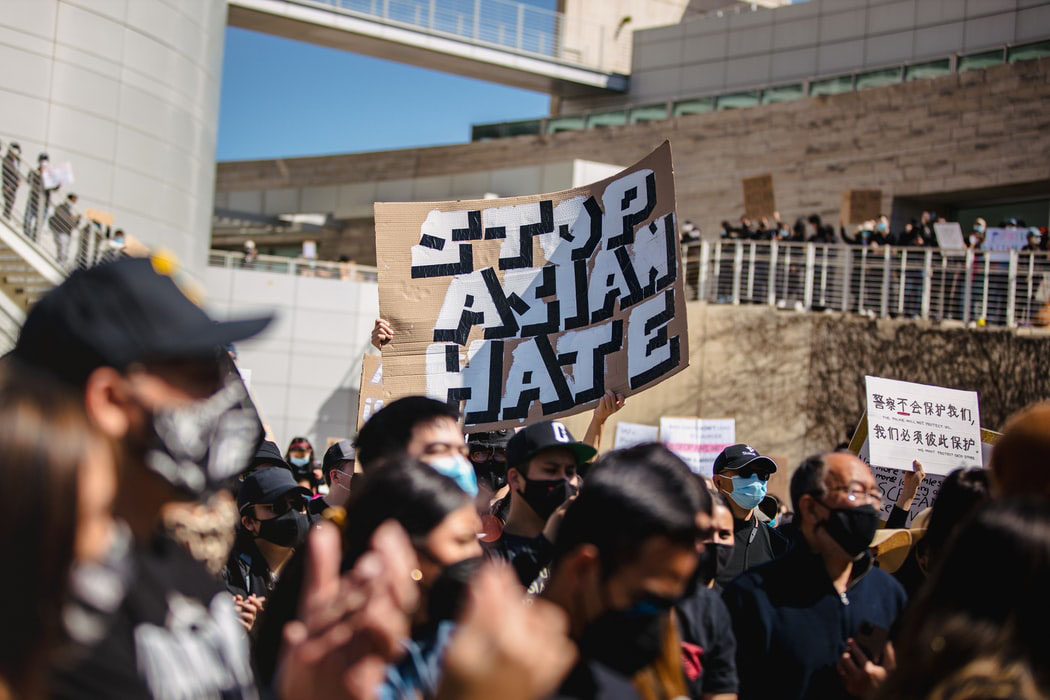
AAPI groups call on more community-centered policies
WITH overwhelming bipartisan support, the United States Senate on Thursday, April 22 approved a hate crimes bill in response to the recent surge in violence and discrimination against the Asian American and Pacific Islander (AAPI) community during the COVID-19 pandemic.
In a 94-1 vote, the COVID-19 Hate Crimes Act, introduced by Sen. Mazie Hirono (D-Hawaii), would create a position at the Department of Justice to expedite the review of such crimes. Republican Sen. Josh Hawley of Missouri was the only lawmaker to vote against it.
“Today’s historic, bipartisan vote on the COVID-19 Hate Crimes Act sends a powerful message of solidarity to the AAPI community—that the United States Senate rejects anti-Asian hate,” Hirono said on Thursday.
The legislation also directs the DOJ to provide hate crime reporting guidance for state and local law enforcement in multiple languages and call on agencies to mitigate racially discriminatory descriptions to refer to the coronavirus. Another provision would expand culturally competent and in-language public education campaigns.
The bill is headed to the House of Representatives for consideration before being signed into law by President Joe Biden.
“More reporting of hate crimes will provide us with increased data and a more accurate picture of the attacks that have been occurring against those of Asian descent, and a more centralized and unified way of reviewing these crimes would help to address the problem in a more effective manner,” said Rep. Grace Meng (D-N.Y.), co-author of the bill.
Biden, who met with AAPI lawmakers at the White House on April 15, applauded the measure, saying it brings “us closer to achieving justice and equality for the AAPI community.”
“Acts of hate against Asian Americans are wrong, un-American, and must stop,” he said in a tweet on Thursday.
The passage of the legislation comes in the wake of anti-Asian violence reported since the beginning of the pandemic. Recent attacks include the March 16 shootings of six Asian women in Atlanta and the April 15 mass shootings at an Indianapolis FedEx facility that took the lives of eight individuals, four of whom were Sikh.
Stop AAPI Hate, a national coalition that tracks anti-Asian American discrimination, revealed last month that from March 19, 2020 to February 28, 2021, it has received 3,795 firsthand incidents of racism and discrimination from all 50 states and the District of Columbia, as previously reported by the Asian Journal.
Of that number, 503 incidents took place in the first two months of 2021 alone. Individuals of Chinese descent constituted the largest ethnic group (42.2%) that said they had experienced hate, followed by Koreans (14.8%), Vietnamese (8.5%) and Filipinos (7.9%).
Women are 2.3 times more likely to report the incidents compared to men. Youths (those up to 17 years old) accounted for 12.6% of incidents, while 6.2% were experienced by individuals 60 years and older.
Verbal harassment (68.1%) and shunning (20.5%), which entails the “deliberate avoidance of Asian Americans,” are the top two types of discrimination reported. Physical assault (11.1%) accounted for the third-largest category of total incidents.
AAPI community leaders and groups acknowledged the support, but also called on deeper community investments that would move away from the reliance on law enforcement.
“We have been humbled by the solidarity and support many have shown in response to anti-Asian hate,” the National Council of Asian Pacific Americans (NCAPA) said in a statement. “But it is difficult to celebrate a system that is willing to respond to violence against Asian Americans, while continuing to perpetuate violence against other communities, including those within our own.”
Community-based solutions that don’t involve policing, NCAPA said, would “address the sources of violence, not just the aftermath.”
The National Federation of Filipino American Associations (NaFFAA), which created its own hate crimes task force, said the passage of the bill in the House would be “a critical next step in protecting our community.”
“NaFFAA understands that even when the system benefits [Asian American, Native Hawaiian and Pacific Islander] communities, it does not give us permission to stop our activism,” said Brendan Flores, the organization’s national chair and president. “We need systemic change to stop hatred and violence against Black and Indigenous communities, and other communities of color.”
Tony DelaRosa, a Fil-Am educator and racial equity strategist, told the Asian Journal that the passage of the bill spurs mixed feelings — one of “relief” seeing funding will be allocated to investigating hate crimes in the community.
“However, I’m in pain knowing that this bill is a short-term fix to the larger issue of white supremacy and its impacts on the Asian American community. We need to stop and think, ‘Why are Asian American hate crimes rising?’ and ‘What is the root cause?’” DelaRosa said, pointing to laws and points in U.S. history that have excluded and “othered” Asians and raising an alarm on the ramifications of over-policing.
The educator added, “This bill will further paint the idea that the police are the end-all-be-all solution to hate crimes against Asians and Asian Americans. We know that further policing does not equal further safety — have we not learned how more policing negatively impacts communities of color?”
DelaRosa is a proponent for legislation that would propose anti-racist curriculum in schools to include Asian and Asian Americans, mandatory bystander training, and funding for community groups to intervene in situations before law enforcement.
The COVID-19 Hate Crimes Act is the latest measure that attempts to respond to the hatred faced by the community.
Last year, the House of Representatives passed a resolution, authored by Meng, which called on public officials to condemn all forms of anti-Asian sentiment and “all manifestations of expression of racism, xenophobia, discrimination, anti-Asian sentiment, scapegoating, and ethnic or religious intolerance.”
The votes were 243 to 164, with the majority “yes” votes coming from 229 Democratic lawmakers and 14 Republican lawmakers.
Last month, the White House also announced several actions to address the current events, which include reinstating the White House Initiative on AAPIs with initial focus on anti-Asian bias and violence, funding for AAPI survivors of domestic violence and sexual assault, and a committee within the COVID-19 Equity Task Force to address xenophobia against the community.
Other moves planned include a research investment of $33 million from the National Science Foundation “to understand, address, and end bias, discrimination and xenophobia, including against AAPI communities” and a virtual bookshelf by the National Endowment for the Humanities, featuring federally-funded projects that explore and celebrate Asian Americans’ contributions to the U.S.
Anti-Asian hate crimes surged 149% in 2020 in 16 major cities, such as New York, San Francisco, and Los Angeles, compared to the prior year, according to analysis from the Center for the Study of Hate and Extremism at California State University, San Bernardino.
In addition to the mass shootings that claimed the lives of individuals of Asian descent, other high-profile violent cases have included Fil-Ams: Vilma Kari, a 65-year-old Filipina immigrant who was brutally attacked on her way to church in New York; Noel Quintana, a Filipino man who was slashed in the face on the New York subway while on his way to work and received nearly 100 stitches; and 74-year-old Juanito Falcon, a Filipino grandfather who was punched in the face in Phoenix, Arizona, and later died of his injuries.






